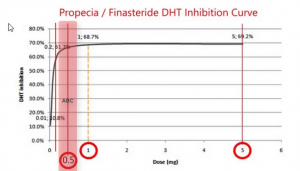In an article just published in the Journal of the American Medical Association, Internal Medicine edition by Dr. Blayne Well et.al. , the impact of finasteride on patients with known depression were studied. Of that population, 272 patients out of 100,000 have a tendency for depression. Could it be that these men, once identified should not be prescribed the drug finasteride? Their concern was to determine if there was a suicide risk that increased because of the use of 5 alpha-reductase inhibitors which included finasteride and dutasteride.
The answer, in my opinion, to this is probably Yes, it is a good idea not to give this drug to people with known depression. Note excerpts below:
2017-05-23 08:37:422017-05-24 15:00:22Finasteride can increase depression and increase patient actions on self-harm but not suicide

